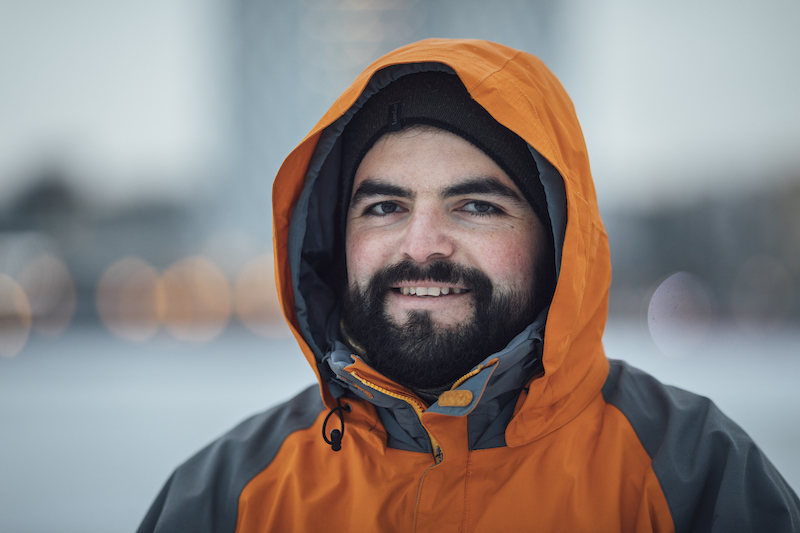Claudio Carletti praises the PoDoCo programme that employs doctors in companies as a win-win solution for both researchers and companies. Kemira received the expert they needed for reaction kinetics research. And for Carletti, the programme has been an opportunity to learn about the industry and applying his own skills.
This article was first published 28.2.2018. Read more about PoDoCo here.
Claudio Carletti originally came to Finland in 2009 as an exchange student from Venezuela. Upon finishing his master’s degree in Venezuela, he returned to Åbo Akademi to write his doctoral dissertation. His dissertation in the field of process design and systems engineering received the 2015 Science and Technology Faculty Award for best dissertation at Åbo Akademi, and his postdoc study in the field of chemical kinetics and fluid dynamics gained him employment not only in Finland but also in Bologna, Italy. Subsequently, Carletti and the Finnish chemical industry giant Kemira found each other through the PoDoCo programme. They began their collaboration in May 2017.
The PoDoCo program provides a possibility for a two-year collaboration, and in accordance with it’s principles, the Nessling Foundation is funding the first year and Kemira funds the second.
Prior to working with Kemira, Carletti’s research focused on pollution control technology used in coal-fired power plants to remove most of the sulphur dioxide harmful to the environment and human health. Carletti studied the process from various perspectives, and eventually chemical kinetics led him to Kemira through PoDoCo.
“I’ve always been interested in the development of technologies that protect the environment and reduce pollution. Making use of my research in Kemira’s product development has been a great way to learn how I can be of use to the industry that is advancing these subjects”, Carletti explains.

Kinetic chemical research: like baking a cake!
At Kemira, Carletti’s research expertise is put to use in the product development of the chemicals used in wastewater and industrial water treatment. The name of the project he is working on is Chemical Kinetic Modelling of Water-Soluble Polymers.
“Water-soluble polymers are long, electrically charged molecules. They can be used to neatly separate other charged particles from wastewater, in this case dirt and pollutants. The kinetic study of a polymer blend suitable for the purpose actually resembles baking a cake: I mix the ingredients in certain proportions and a certain order. Instead of putting the “dough” in the oven, I leave it to stand. I observe how the temperature, pressure and the ingredient proportions affect the reaction happening in the mixture along with its speed. The goal is a reaction that is as effective and energy-efficient as possible.”
Direct applications for your work through the PoDoCo programme
Carletti thinks the most rewarding thing about his work is that it offers a clear application for his diligent research.
“Doctors are trained to do research, but they may not necessarily know how to apply it to things that are valuable for companies. PoDoCo is a great opportunity for this kind of learning and research that has a concrete meaning for society and the environment”, Carletti says.
He recommends the PoDoCo programme for researchers and companies in any field, whether it be engineering, medicine or art.
“I hope that my experience with the programme is a good example of the fact that it works. I also hope that more foundations will get involved with PoDoCo, so that more collaboration can be funded. This is a wonderful link between the academic world and industry, a win-win solution!”
PoDoCo programme grants can be applied twice a year. Each year, the Nessling Foundation supports the employment of two postdocs in companies who are solving environmental challenges with their research.
Read also about Henna Fabritius’ PoDoCo journey here.


